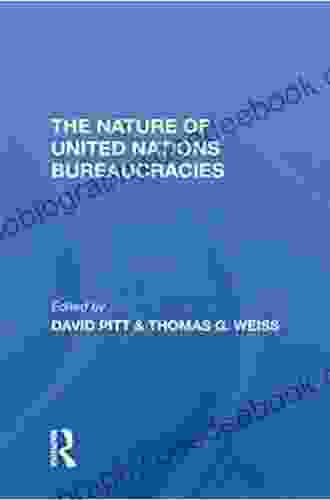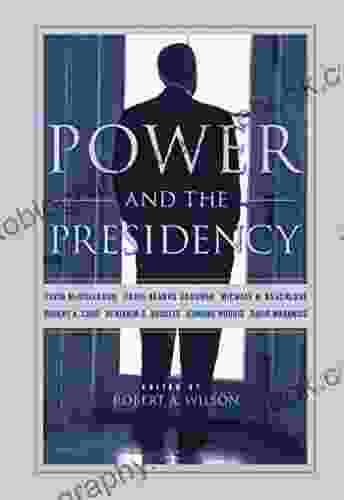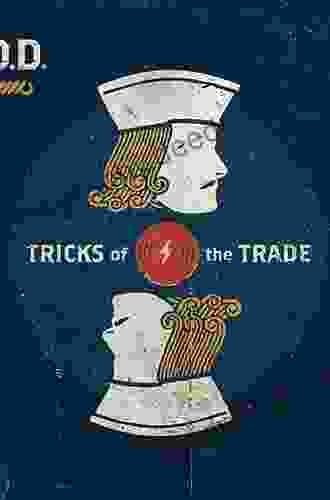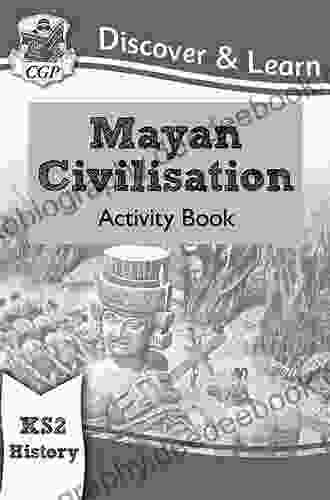Unveiling the Complex Nature of United Nations Bureaucracies

The United Nations (UN) is a vast and complex organization, comprising a network of specialized agencies, funds, and programs. At the heart of this intricate system lies a diverse and influential group of bureaucracies that play a pivotal role in shaping the organization's policies, operations, and impact on the world stage.
5 out of 5
| Language | : | English |
| File size | : | 1965 KB |
| Text-to-Speech | : | Enabled |
| Screen Reader | : | Supported |
| Enhanced typesetting | : | Enabled |
| Word Wise | : | Enabled |
| Print length | : | 237 pages |
Understanding the nature of UN bureaucracies is essential for grasping the inner workings of this global organization. These bureaucracies are not mere administrative entities; they are dynamic and multifaceted bodies that reflect the political, social, and economic realities of the member states they represent.
Bureaucratic Structure and Functions
UN bureaucracies vary widely in terms of their size, structure, and mandates. Some, such as the Secretariat, are large and centralized, with a clear hierarchical structure. Others, such as the specialized agencies, are more decentralized and autonomous.
Despite these differences, all UN bureaucracies share certain core functions:
- Policy formulation: Bureaucrats play a key role in developing and implementing UN policies. They provide expert advice to decision-makers, conduct research, and draft resolutions and agreements.
- Program implementation: Bureaucrats are responsible for implementing UN programs and initiatives. They manage budgets, procure goods and services, and coordinate activities with partners around the world.
- Administrative support: Bureaucrats provide essential administrative support to UN operations. They manage human resources, financial resources, and information systems.
Bureaucratic Culture and Values
The bureaucratic culture of the UN is shaped by a complex interplay of factors, including the organization's mission, values, and membership. UN bureaucrats are generally characterized by:
- Internationalism: Bureaucrats come from diverse backgrounds and cultures, and they share a commitment to working together towards global goals.
- Professionalism: Bureaucrats are highly skilled and experienced professionals, dedicated to delivering quality services to member states.
- Impartiality: Bureaucrats are expected to be impartial and objective in their work, putting the interests of the organization above their own or those of their home countries.
- Accountability: Bureaucrats are accountable to their superiors and to the member states they serve.
Bureaucratic Challenges and Opportunities
Like any organization, UN bureaucracies face a range of challenges and opportunities. Key challenges include:
- Complexity: The UN system is highly complex and bureaucratic, which can lead to slow decision-making and implementation.
- Fragmentation: The UN system is fragmented into numerous agencies, funds, and programs, which can lead to duplication and inefficiency.
- Political interference: Bureaucrats can sometimes be subject to political interference from member states, which can compromise their impartiality and independence.
Despite these challenges, UN bureaucracies also offer a number of opportunities. These include:
- Global reach: UN bureaucracies have a global reach, enabling them to address complex challenges that transcend national borders.
- Specialized expertise: Bureaucrats possess a wide range of specialized skills and expertise, which is essential for delivering effective programs and services.
- Collaborative potential: UN bureaucracies have the potential to collaborate effectively with each other and with external partners, leveraging their collective resources and expertise.
Reform and Innovation
UN bureaucracies are constantly evolving and adapting to meet the changing needs of the world. In recent years, there have been a number of reform initiatives aimed at improving the efficiency, effectiveness, and accountability of UN bureaucracies. These initiatives include:
- Streamlining and consolidation: Efforts have been made to streamline the UN system by merging or consolidating certain agencies and programs.
- Decentralization and empowerment: Bureaucrats are being given more authority and discretion to make decisions at the field level.
- Enhanced transparency and accountability: Measures have been taken to increase the transparency and accountability of UN bureaucracies, including the adoption of stricter ethical guidelines and financial controls.
These reform initiatives are ongoing, and it remains to be seen how they will ultimately shape the nature of UN bureaucracies. However, they reflect a recognition that UN bureaucracies must continue to adapt and innovate in order to meet the challenges of the 21st century.
The United Nations bureaucracies are complex and multifaceted organizations that play a critical role in shaping the policies, operations, and impact of the UN. They are characterized by their internationalism, professionalism, impartiality, and accountability, but they also face a range of challenges, including complexity, fragmentation, and political interference.
Reform initiatives are underway to address these challenges and improve the efficiency, effectiveness, and accountability of UN bureaucracies. While the full impact of these reforms remains to be seen, they reflect a recognition that UN bureaucracies must continue to adapt and innovate in order to meet the challenges of the 21st century.
As the world faces increasingly complex and interconnected challenges, the role of UN bureaucracies is likely to become even more important. By understanding the nature of these bureaucracies, we can better appreciate their contributions to global governance and work together to strengthen their effectiveness.

5 out of 5
| Language | : | English |
| File size | : | 1965 KB |
| Text-to-Speech | : | Enabled |
| Screen Reader | : | Supported |
| Enhanced typesetting | : | Enabled |
| Word Wise | : | Enabled |
| Print length | : | 237 pages |
Do you want to contribute by writing guest posts on this blog?
Please contact us and send us a resume of previous articles that you have written.
 Book
Book Novel
Novel Page
Page Chapter
Chapter Genre
Genre Reader
Reader Library
Library Magazine
Magazine Newspaper
Newspaper Paragraph
Paragraph Sentence
Sentence Glossary
Glossary Foreword
Foreword Preface
Preface Synopsis
Synopsis Annotation
Annotation Footnote
Footnote Bestseller
Bestseller Classics
Classics Library card
Library card Autobiography
Autobiography Encyclopedia
Encyclopedia Dictionary
Dictionary Thesaurus
Thesaurus Librarian
Librarian Catalog
Catalog Card Catalog
Card Catalog Borrowing
Borrowing Study
Study Research
Research Reserve
Reserve Journals
Journals Rare Books
Rare Books Special Collections
Special Collections Interlibrary
Interlibrary Literacy
Literacy Study Group
Study Group Dissertation
Dissertation Awards
Awards Reading List
Reading List Hilary Grossman
Hilary Grossman Alice Maulaz
Alice Maulaz Derald Wing Sue
Derald Wing Sue John Suchet
John Suchet Cyril Lepeigneux
Cyril Lepeigneux Steven A Hitz
Steven A Hitz Daniel W Bushnell
Daniel W Bushnell Craig Murray
Craig Murray Mumia Abu Jamal
Mumia Abu Jamal Jamie Merisotis
Jamie Merisotis David Bolton
David Bolton Robert Louis Stevenson
Robert Louis Stevenson Mrs Bertimus
Mrs Bertimus Alice Oswald
Alice Oswald 2008th Edition Kindle Edition
2008th Edition Kindle Edition Andrew Vachss
Andrew Vachss Celine Jeanjean
Celine Jeanjean Ryan Rimmel
Ryan Rimmel Selena Rezvani
Selena Rezvani Mario Biagioli
Mario Biagioli
Light bulbAdvertise smarter! Our strategic ad space ensures maximum exposure. Reserve your spot today!
 Sean TurnerFollow ·9.2k
Sean TurnerFollow ·9.2k Eli BrooksFollow ·3.4k
Eli BrooksFollow ·3.4k Franklin BellFollow ·3.4k
Franklin BellFollow ·3.4k Will WardFollow ·4.6k
Will WardFollow ·4.6k Miguel NelsonFollow ·5k
Miguel NelsonFollow ·5k Fred FosterFollow ·18.1k
Fred FosterFollow ·18.1k Elmer PowellFollow ·14.2k
Elmer PowellFollow ·14.2k Jake CarterFollow ·17k
Jake CarterFollow ·17k

 Fletcher Mitchell
Fletcher MitchellEducation And Peace Montessori 10: Where Learning...
A Symphony of Learning and Well-being Amidst...

 Glen Powell
Glen PowellUnveiling the Wonders of Language and Literacy...
Language and literacy...

 Rod Ward
Rod WardThe Portable Benjamin Franklin: A Timeless Collection of...
In the vast tapestry of American history,...
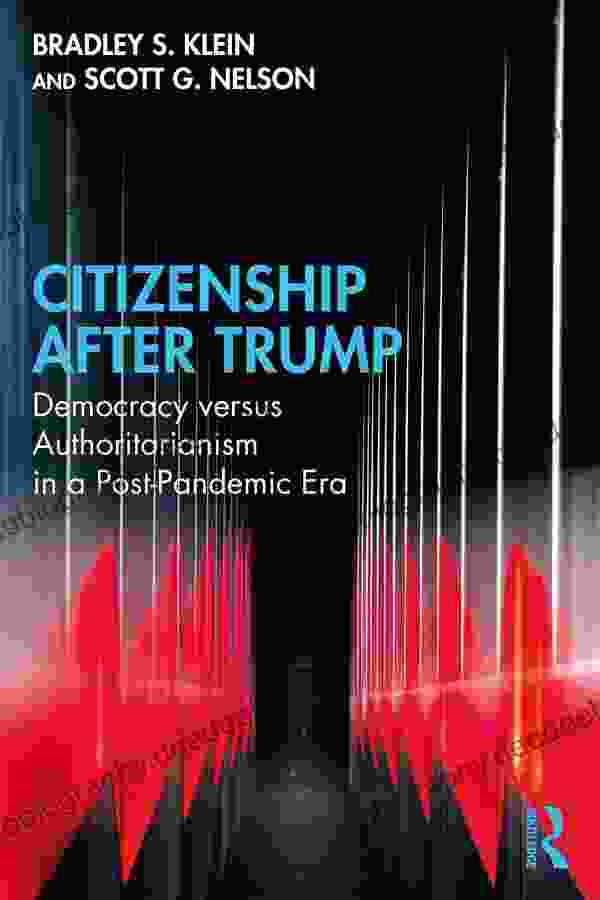
 Kelly Blair
Kelly BlairDemocracy Versus Authoritarianism in the Post-Pandemic...
The COVID-19...

 Colin Richardson
Colin RichardsonGet Inspired To Shoot Over 130 Poses
Are you looking for...

 Jared Nelson
Jared NelsonEmbark on a Shadowy Journey: The Forbidden Wilds and...
Prologue: A Realm Enshrouded in Darkness As...
5 out of 5
| Language | : | English |
| File size | : | 1965 KB |
| Text-to-Speech | : | Enabled |
| Screen Reader | : | Supported |
| Enhanced typesetting | : | Enabled |
| Word Wise | : | Enabled |
| Print length | : | 237 pages |


